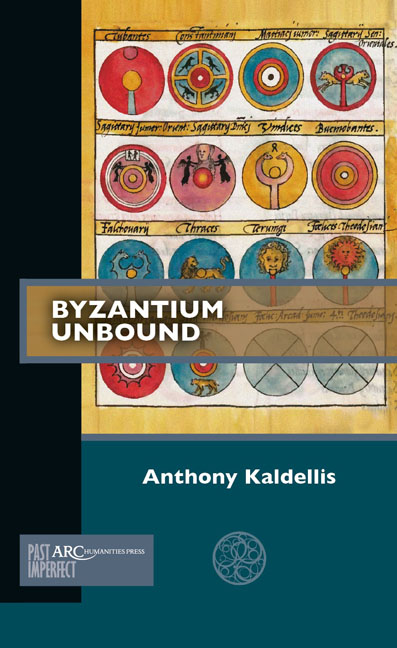Chapter 2 - Thinking Historically with Byzantium
Published online by Cambridge University Press: 20 November 2020
Summary
Ludwig Wittgenstein once asked, “Why do people say it is more logical to think that the sun revolves around the earth than that the earth rotates around its own axis?” “Because it appears as if the sun revolves around the earth.” “Good,” he said, “but how would it have appeared if the earth rotates around its own axis?”
Possibly apocryphal anecdote (simplified)How can Byzantium become compelling and relevant to broader audiences of readers interested in history, albeit without pandering to past stereotypes about its spirituality, mysticism, decadence, and decline? How can non-experts be persuaded to look its way more often? How might it be ensconced in broader debates about premodern history?
Byzantinists reasonably complain about these stereotypes and about the absence of Byzantium from broader public debates. Yet complaint might still be premature. Compared to classicists and medievalists, the field of Byzantine Studies has invested little in studying its own origins and ideologies, the history of western perceptions of Byzantium, and the politics of the stereotypes against which we are now protesting. Doing so would provide greater clarity and focus to our strategies of rehabilitation, and would also reveal how we remain complicit in perpetuating some problems, for instance the cognitive dissonance that is Roman denialism, or the trading on “mysticism” to sell tickets to a bourgeoisie eager to consume the Other.
Moreover, when it comes to the relative absence of Byzantium from the public consciousness, complaining about it is not enough. What positive reasons can we offer for its inclusion? Why should the general reading public or history enthusiasts care more about Byzantium and turn to it when thinking about the past and present? The insistence that all historical eras and cultures deserve attention won't fly even within academia, and is dead in the water outside it. Attention has to be earned. Some popularizing books do highlight the many achievements of Byzantium. This is necessary, but usually presupposes that one already finds the topic interesting. And many of these books treat Byzantium as important primarily for its services to the West (for example, blocking the Arabs from Europe and preserving classical Greek literature), or its services to Orthodox countries (e.g., for converting some Slavs), rather than for its own sake.
- Type
- Chapter
- Information
- Byzantium Unbound , pp. 29 - 54Publisher: Amsterdam University PressPrint publication year: 2019

